Recent Posts
Tuesday, June 5, 2012
Windows Phone Is A Flop: What’s Wrong With Windows Phone?
Posted on 2:22 PM by Admin
 By
any measure of success Microsoft's Windows Phone is a flop -- so far.
The bitter irony for Microsoft is, it's a great phone. What's going
wrong?
By
any measure of success Microsoft's Windows Phone is a flop -- so far.
The bitter irony for Microsoft is, it's a great phone. What's going
wrong?
Here are some interesting facts.
Microsoft's Windows Phone, introduced in 2010, is a critically
acclaimed mobile OS from the world’s largest software maker - a company
that has a long history with mobile products. As recently as late 2009,
Microsoft’s Windows Mobile platform claimed nearly 20 percent of U.S.
smartphone users. But today, instead of building on that success,
Microsoft has failed.
During the first three months of 2012, Microsoft's Windows Phone
platform owned a dismal 2 percent of the U.S. smartphone market,
according to Nielsen ratings.
Even Microsoft's aging Windows Mobile platform had a bigger market
share than Windows Phone during that time, claiming 4.1 percent of
users, Nielsen reports.
Just Try it, You'll Like it
Now here's the part that must drive Microsoft crazy. Many of those who have tried Windows Phone 7 handsets, such as the Nokia Lumia 710 or Lumia 900, love them.
When Waterloo, Canada resident Bilal Khan found his father struggling to use an Android Samsung Galaxy SII smartphone,
the younger Khan lent him his Lumia 710 instead. Khan told his father
to use it for a couple hours while he went out for a workout. "When I
came home two hours later, he didn't want to give it back," Khan said.
And his father didn't for about a week. Finally, he returned the device
to his son, but only after purchasing his own Windows Phone.
Khan and his father are part of a small and devoted fan base for
Windows Phone and its slick Metro UI design. Devotees note that the
Windows Phone is intuitive and easy to use. Within an hour after picking
it up, Khan said, his father was using advanced features such as the
Nokia Play To app to connect the phone to his laptop via DLNA.
Ease of use coupled with the phone's deep personalization and
integration with Microsoft Office and Xbox Live have won over many. But
adoption rates are anemic. Google’s Android platform, by comparison, had
captured 12 percent of American smartphone subscribers about 18 months
after its U.S. debut. As of late April, Android's smartphone market
share is nearly 51 percent in the U.S, metrics firm Comscore recently reported.
Blame the Carriers?
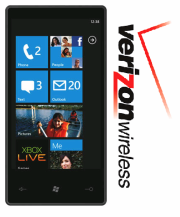 What’s wrong with Windows Phone? Analysts I spoke to say Microsoft's
struggles with its Windows Phone are tied to bad timing of its launch,
carrier partnerships, muddled marketing messages, and a deficit of apps
compared to the iOS and Android platform. The good news for Microsoft,
there are plenty of indicators suggesting Microsoft's Windows Phone
platform is ready to take off.
What’s wrong with Windows Phone? Analysts I spoke to say Microsoft's
struggles with its Windows Phone are tied to bad timing of its launch,
carrier partnerships, muddled marketing messages, and a deficit of apps
compared to the iOS and Android platform. The good news for Microsoft,
there are plenty of indicators suggesting Microsoft's Windows Phone
platform is ready to take off.
Charlie Kindel,
a former Microsoft employee who ran the Windows Phone developer
experience, believes a mobile OS lives and dies with the support (or the
lack thereof) of wireless carriers such as AT&T, Sprint, and
Verizon.
“The most important factor is whether carriers are pushing your
platform,” Kindel says. “Up until now carriers have not been selling
Windows Phones.”
Carriers claim to want a third smartphone platform to offset the
power of Apple and Google but often push the iPhone and Android devices
before other platforms, critics say. “Carrier support for Android grew
organically in response to the iPhone,” says Ross Rubin, a principal
analyst with market research firm NPD Group. When first introduced the
iPhone enjoyed an exclusive sales deal with AT&T. Other carriers
were quick to push Android as an alternative to the iPhone, and many
still do.
In 2009 and 2010 we saw Android share grow strongly first at Verizon,
then Sprint and T-Mobile, Rubin says. Microsoft would introduce Windows
Phone late 2010 missing the unprecedented first touchscreen-inspired
smartphone consumer push by nearly two years.
Today there is evidence that carriers are warming to Windows Phones.
Verizon CFO Fran Shammo recently hinted the company wants this year to
support Windows Phone in the same way it supported Android’s rise
several years ago. If Verizon follows that path it will put its
commercial muscle behind Windows Phone with widespread advertising,
in-store marketing, and retail sales people recommending
Microsoft-powered smartphones to customers -- just as it did with
Android.
The OS is Not the Problem
Ask Windows Phone users why they favor Microsoft’s platform and they
point to the refreshing Metro UI that goes beyond the typical grid of
icons on Android and iOS. Instead, Windows Phone focuses on large tile
icons that display Facebook and Twitter updates, weather, and e-mail at a
glance.
“It’s not the same boring interface...[Windows Phone] is completely
new and fresh and it still makes me smile every time I use it,” says
David Erwin, a passionate Windows Phone user based in San Diego,
California. “My phone feels like an extension of me,” Erwin says. “It's
the most personal thing I have ever owned.”
“It’s very easy to set up and use, super fast, and Window Phone seems
to have all the apps I need for my personal and professional needs,”
David Kirkdorffer, a Boston-based marketing executive and Windows Phone
fan said via e-mail.
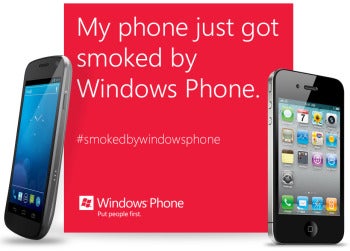 But maybe that refreshing and easy-to-use interface is part of the
problem. Windows Phone is a big change from the typical icon grids on
Android or iOS -- even basic feature phones use a grid of icons to
display apps. The problem is people generally don't like change, at
least at first.
But maybe that refreshing and easy-to-use interface is part of the
problem. Windows Phone is a big change from the typical icon grids on
Android or iOS -- even basic feature phones use a grid of icons to
display apps. The problem is people generally don't like change, at
least at first.
“I think the challenge is to get someone to try something that’s
completely different,” says Juuso Myllyrinne, a former digital marketing
manager for Nokia. From a marketing standpoint, Myllyrinne says,
AT&T is the company doing the best job of grappling with this
dilemma.
“AT&T
is trying to communicate this new type of experience. They are talking
about the live tiles, the experience of actually using it,” Myllyrinne
says. AT&T commercials, for example, tend to show people navigating
the Metro user interface with ease and using the phone to access
Microsoft Office, or the People Hub that integrates your contacts and
social networking activity into one spot on your phone. Microsoft
meanwhile, is focusing on speed with its Smoked by Windows Phone campaign, while Nokia is making an aggressive play against Android.
The App Gap
Another issue: the all-important question of apps. Microsoft’s
Windows Phone Marketplace has more than 85,000 apps, a fraction of the
hundreds of thousands of choices for Android and iOS. But it’s not all
about numbers. For every hit like Angry Birds in the iOS App Store or
Google Play, the selection includes dozens of low-quality apps offering
nothing more than fart sounds, device wallpapers, or photos of scantily
clad women.
But
even when you cut out all the fluff in competing app stores, the
Windows Phone Marketplace still comes up short, according to critics and
users. During Windows Phone’s early days in 2010, Khan says he could
get many of the popular apps that Android users also had such as
Facebook and Netflix. “Now, Android has many more mainstream official
apps than Windows Phone,” Khan says.
“[Microsoft] has has been doing a good job growing the catalog, but
there are still some big holes,” adds NPD’s Rubin, who points to Pandora
Internet radio as a service missing from Windows Phone. Other users
complain of missing apps from Chase Bank or popular streaming services
such as HBO Go.
To overcome the app gap, Nokia is tackling the matter directly.
Microsoft’s closest smartphone partner in early May announced a number
of apps exclusive to Nokia Windows Phone devices
for a limited time, among them ESPN, Groupon, and AOL Entertainment.
Critics argue that Nokia’s efforts might help the company but could lead
to fragmentation with manufacturers laying claim to a variety of
exclusive Windows Phone apps. Nokia’s Slater disagrees, arguing the
company’s exclusive apps aren’t about fragmentation but adding value for
Nokia users. “We are absolutely not fragmenting for our consumers,”
Slater says.
For its part, Microsoft says it is adding roughly 300 new app titles to the Marketplace every day.
The Future
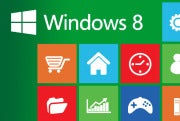 As Microsoft and its partners try to win smartphone users, the
company is reportedly hard at work on Windows Phone 8, the next version
of the smartphone platform. Codenamed “Apollo,” Windows Phone 8 is
expected to have deep integration with the similarly named Windows 8,
the next version of Microsoft’s PC operating system for tablets and
PCs. Deeper integration with PCs and other home devices could encourage
more people to give Windows Phone a try, enticed by expected features
such as wireless data transfer and enhanced SkyDrive features.
As Microsoft and its partners try to win smartphone users, the
company is reportedly hard at work on Windows Phone 8, the next version
of the smartphone platform. Codenamed “Apollo,” Windows Phone 8 is
expected to have deep integration with the similarly named Windows 8,
the next version of Microsoft’s PC operating system for tablets and
PCs. Deeper integration with PCs and other home devices could encourage
more people to give Windows Phone a try, enticed by expected features
such as wireless data transfer and enhanced SkyDrive features.
However, persistent rumors suggest that Apollo will not run on
current Windows Phone hardware. Microsoft will not comment on future
versions of Windows Phone, but if the speculation is accurate, that
incompatibility could hurt Microsoft’s short term gains by upsetting
users who may feel stuck with a Windows Phone 7. Developers could also
be frustrated if they have to rewrite their apps, although most Windows
Phone 7 apps may run as legacy software under the new system. Microsoft
may answer some of these questions during a Windows Phone event in San
Francisco on June 20.
Source: WinrumorsAs for Windows 8,
the new touch-friendly OS (expected in October) could also help Windows
Phone since it will introduce a similar Metro-style interface to users.
“I think it will be additive,” says Kindel of Windows 8. “I don’t think
it’s going to be the thing that tilts the scales, but it is definitely
going to have a positive impact.”
Myllyrinne expresses similar sentiments. “Once [the Metro UI] becomes
the norm [on PCs] it might be easier for people to adopt that sort of
logic on phones as well.”
In the meantime, Greg Sullivan, Microsoft's senior product manager
for Windows Phone, says to expect more from the software maker in the
coming months. “We’ve been in the market with Windows Phone for about a
year and a half,” Sullivan said via e-mail. “And have seen great
response to our new approach, and we’re really just getting started.”
Subscribe to:
Post Comments (Atom)

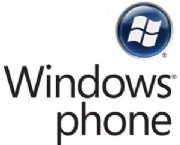
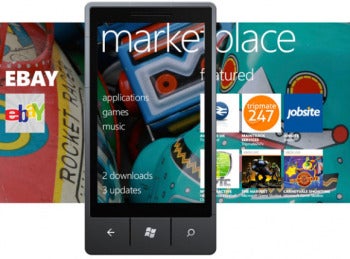
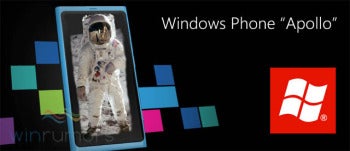
No Response to "Windows Phone Is A Flop: What’s Wrong With Windows Phone?"
Leave A Reply